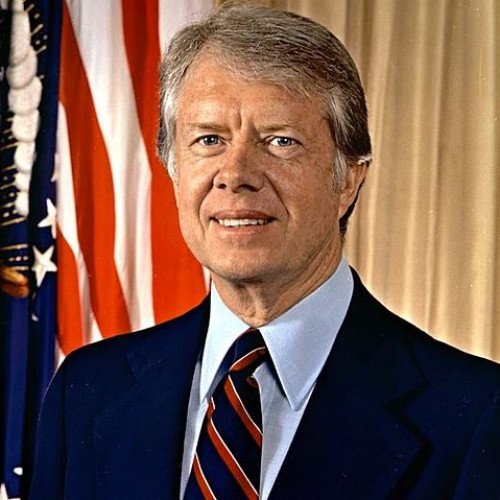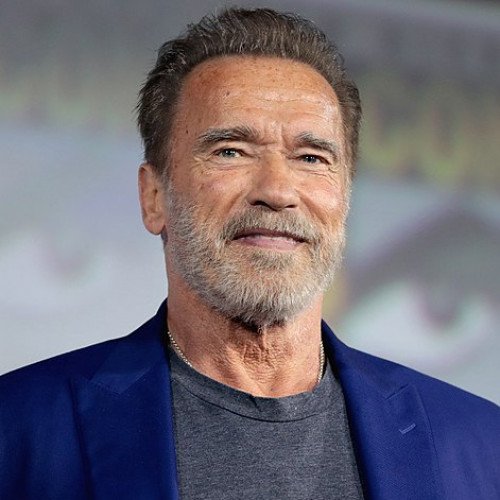Jimmy Carter VS Arnold Schwarzenegger

Jimmy Carter
James Earl Carter Jr. (born October 1, 1924) is an American politician and philanthropist who served as the 39th president of the United States from 1977 to 1981. A member of the Democratic Party, he previously served as a Georgia State Senator from 1963 to 1967 and as the 76th governor of Georgia from 1971 to 1975. Since leaving the presidency, Carter has remained engaged in political and social projects as a private citizen. In 2002, he was awarded the Nobel Peace Prize for his work in co-founding the Carter Center. Raised in Plains, Georgia, Carter graduated from the United States Naval Academy in 1946 with a Bachelor of Science degree and joined the United States Navy, where he served on submarines. After the death of his father in 1953, Carter left his naval career and returned home to Georgia to take up the reins of his family's peanut-growing business. Carter inherited comparatively little due to his father's forgiveness of debts and the division of the estate among the children. Nevertheless, his ambition to expand and grow the Carters' peanut business was fulfilled. During this period, Carter was motivated to oppose the political climate of racial segregation and support the growing civil rights movement. He became an activist within the Democratic Party. From 1963 to 1967, Carter served in the Georgia State Senate, and in 1970, he was elected as Governor of Georgia, defeating former Governor Carl Sanders in the Democratic primary on an anti-segregation platform advocating affirmative action for ethnic minorities. Carter remained as governor until 1975. Despite being a dark-horse candidate who was little known outside of Georgia at the start of the campaign, Carter won the 1976 Democratic presidential nomination. In the general election, Carter ran as an outsider and narrowly defeated incumbent Republican President Gerald Ford. On his second day in office, Carter pardoned all the Vietnam War draft evaders by issuing Proclamation 4483. During Carter's term as president, two new cabinet-level departments, the Department of Energy and the Department of Education, were established. He established a national energy policy that included conservation, price control, and new technology. In foreign affairs, Carter pursued the Camp David Accords, the Panama Canal Treaties, the second round of Strategic Arms Limitation Talks (SALT II), and the return of the Panama Canal Zone to Panama. On the economic front, he confronted stagflation, a persistent combination of high inflation, high unemployment and slow growth. The end of his presidential tenure was marked by the 1979–1981 Iran hostage crisis, the 1979 energy crisis, the Three Mile Island nuclear accident, and the Soviet invasion of Afghanistan. In response to the invasion, Carter escalated the Cold War when he ended détente, imposed a grain embargo against the Soviets, enunciated the Carter Doctrine, and led a 1980 Summer Olympics boycott in Moscow. In 1980, Carter faced a challenge from Senator Ted Kennedy in the primaries, but he won re-nomination at the 1980 Democratic National Convention. Carter lost the general election to Republican nominee Ronald Reagan in an electoral landslide. He is the only president in American history to serve a full term of office and never appoint a justice to the Supreme Court. Polls of historians and political scientists usually rank Carter as a below-average president. Carter's activities since leaving the presidency have been viewed more favorably than his presidency itself. In 1982, Carter established the Carter Center to promote and expand human rights. He has traveled extensively to conduct peace negotiations, monitor elections, and advance disease prevention and eradication in developing nations. Carter is considered a key figure in the Habitat for Humanity charity. He has written over 30 books, ranging from political memoirs to poetry, while continuing to actively comment on ongoing American and global affairs such as the Israeli-Palestinian conflict.
Statistics for this Xoptio

Arnold Schwarzenegger
Arnold Alois Schwarzenegger (; German: [ˈaʁnɔlt ˈʃvaʁtsn̩ˌʔɛɡɐ]; born July 30, 1947) is an Austrian-American actor, businessman, retired professional bodybuilder and former politician who served as the 38th Governor of California from 2003 to 2011. As of 2021, he is the most recent Republican governor of California. Schwarzenegger began lifting weights at the age of 15, and went on to win the Mr. Universe title at age 20 before winning the Mr. Olympia contest seven times; he remains a prominent presence in bodybuilding and has written many books and articles on the sport. The Arnold Sports Festival, considered the second-most important bodybuilding event after Mr. Olympia, is named after him. He is widely regarded as one of the greatest bodybuilders of all time, as well as the sport's most charismatic and famous ambassador.Schwarzenegger gained worldwide fame as a Hollywood action film icon. After appearing in the bodybuilding documentary Pumping Iron (1977), his breakthrough film was the sword-and-sorcery epic Conan the Barbarian (1982), a box-office hit that resulted in a sequel in 1984. He appeared as the title character in James Cameron's critically and commercially successful science fiction film The Terminator (1984), and subsequently played similar characters in the sequel films Terminator 2: Judgment Day (1991), Terminator 3: Rise of the Machines (2003), Terminator Genisys (2015) and Terminator: Dark Fate (2019). He also starred in other successful action films such as Commando (1985), The Running Man (1987), Predator (1987), Total Recall (1990) and True Lies (1994), in addition to comedy films such as Twins (1988), Kindergarten Cop (1990), Junior (1994) and Jingle All the Way (1996). As a Republican candidate, Schwarzenegger was first elected on October 7, 2003, in a special recall election to replace then-Governor Gray Davis, with 48.6% of the vote, 17 points ahead of Democrat runner-up Cruz Bustamante. He was sworn in on November 17 to serve the remainder of Davis' term. Schwarzenegger was re-elected in the 2006 California gubernatorial election with an increased vote share of 55.9%, to serve a full term as governor. In 2011, he reached his term limit as Governor and returned to his career in acting. Schwarzenegger was nicknamed the "Austrian Oak" in his bodybuilding days, "Arnie" or "Schwarzy" during his acting career, and "The Governator" (a portmanteau of "Governor" and "Terminator") during his political career. He married Maria Shriver, the niece of 35th U.S. President John F. Kennedy, in 1986. They separated in 2011 after he admitted to having fathered an illegitimate child with their housemaid in 1997, and their divorce was finalized in 2017. The name of his production company is Oak Productions.